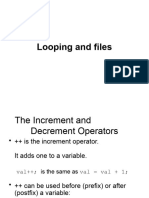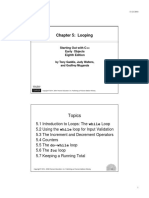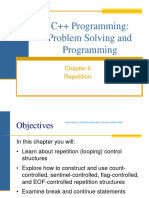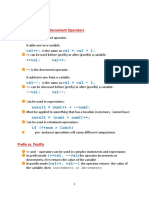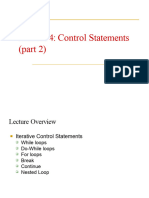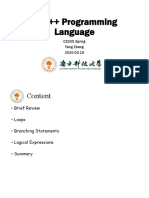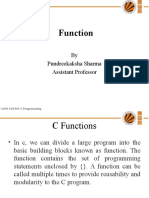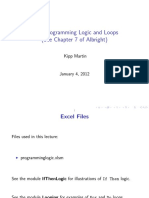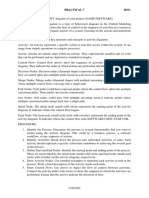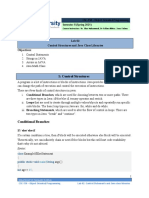0% found this document useful (0 votes)
27 views8 pagesC++ Looping Essentials
The document discusses increment and decrement operators (++, --) and their use in for and while loops. It explains that the ++ and -- operators can be used in either prefix or postfix form, and that they affect the loop variable differently depending on position. The document also compares for and while loops, showing how a for loop initializes, tests, and updates a counter variable to control loop iterations. Various loop examples are provided to illustrate concepts.
Uploaded by
Lily KhalidCopyright
© © All Rights Reserved
We take content rights seriously. If you suspect this is your content, claim it here.
Available Formats
Download as PDF, TXT or read online on Scribd
0% found this document useful (0 votes)
27 views8 pagesC++ Looping Essentials
The document discusses increment and decrement operators (++, --) and their use in for and while loops. It explains that the ++ and -- operators can be used in either prefix or postfix form, and that they affect the loop variable differently depending on position. The document also compares for and while loops, showing how a for loop initializes, tests, and updates a counter variable to control loop iterations. Various loop examples are provided to illustrate concepts.
Uploaded by
Lily KhalidCopyright
© © All Rights Reserved
We take content rights seriously. If you suspect this is your content, claim it here.
Available Formats
Download as PDF, TXT or read online on Scribd
/ 8








